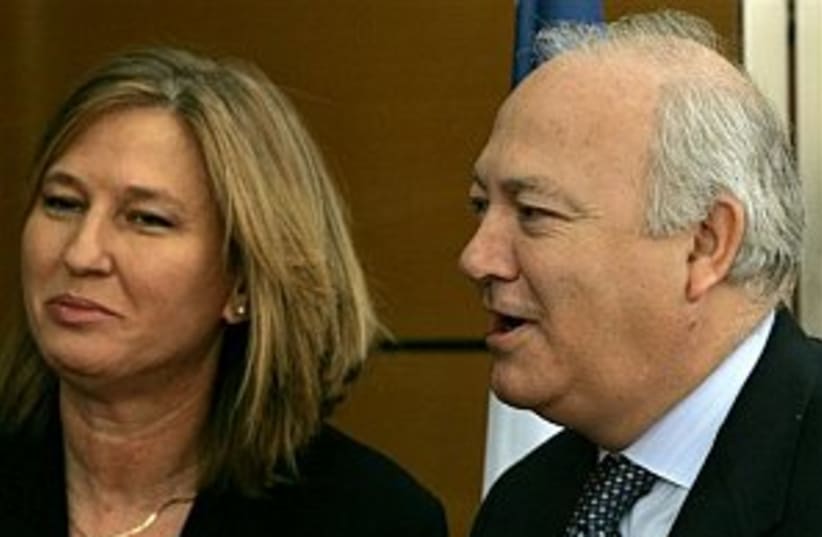| JPOST.COM HIT LIST | |
| JPost.com's most popular articles this past week |
Livni to EU: Don't be fooled by Hamas
Urges European leaders not to lower the bar on its three-fold demands.


| JPOST.COM HIT LIST | |
| JPost.com's most popular articles this past week |